El Salto published this piece of mine today (11-1-2020):
Here are some photos that illustrate the article’s theme:
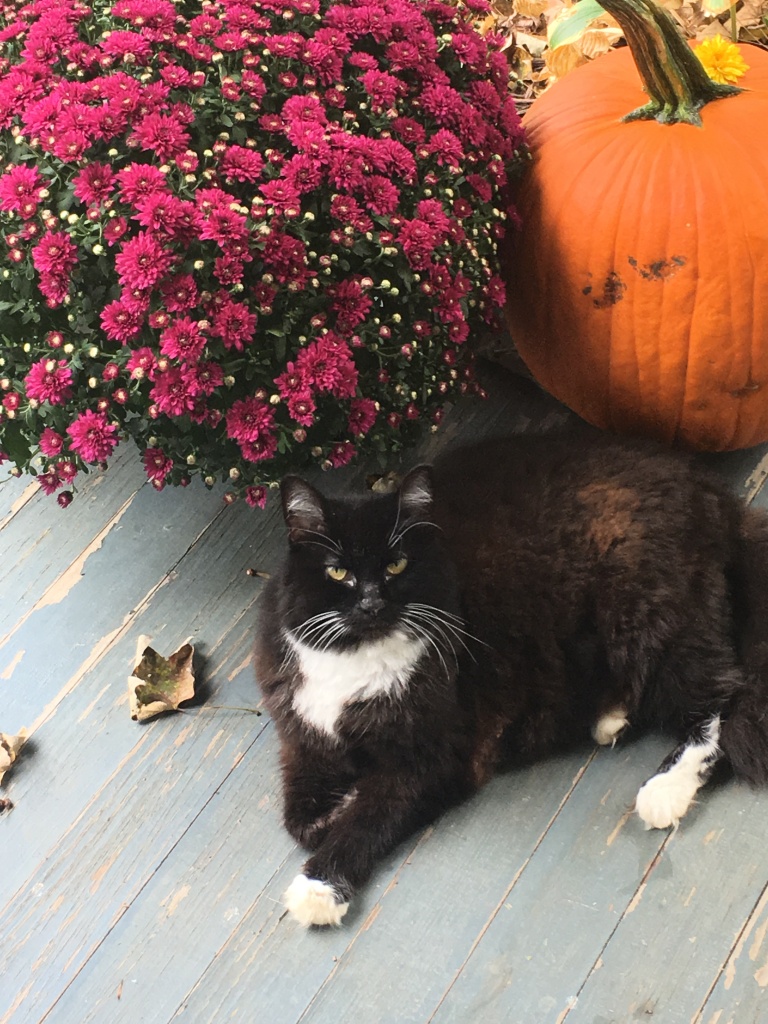
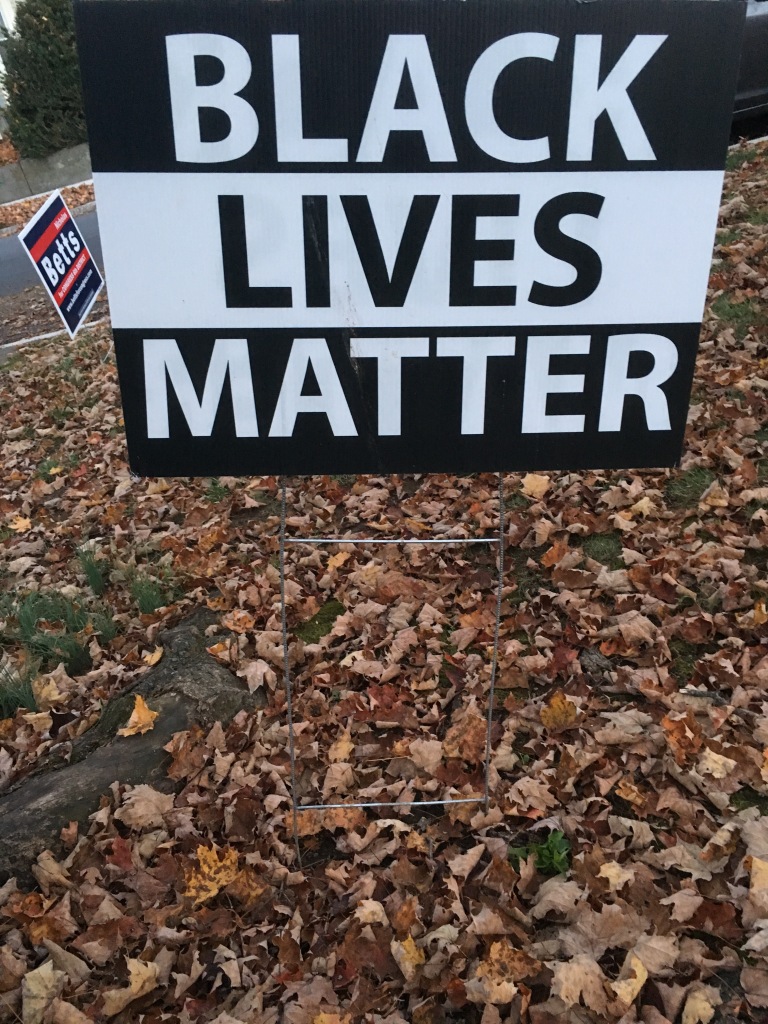
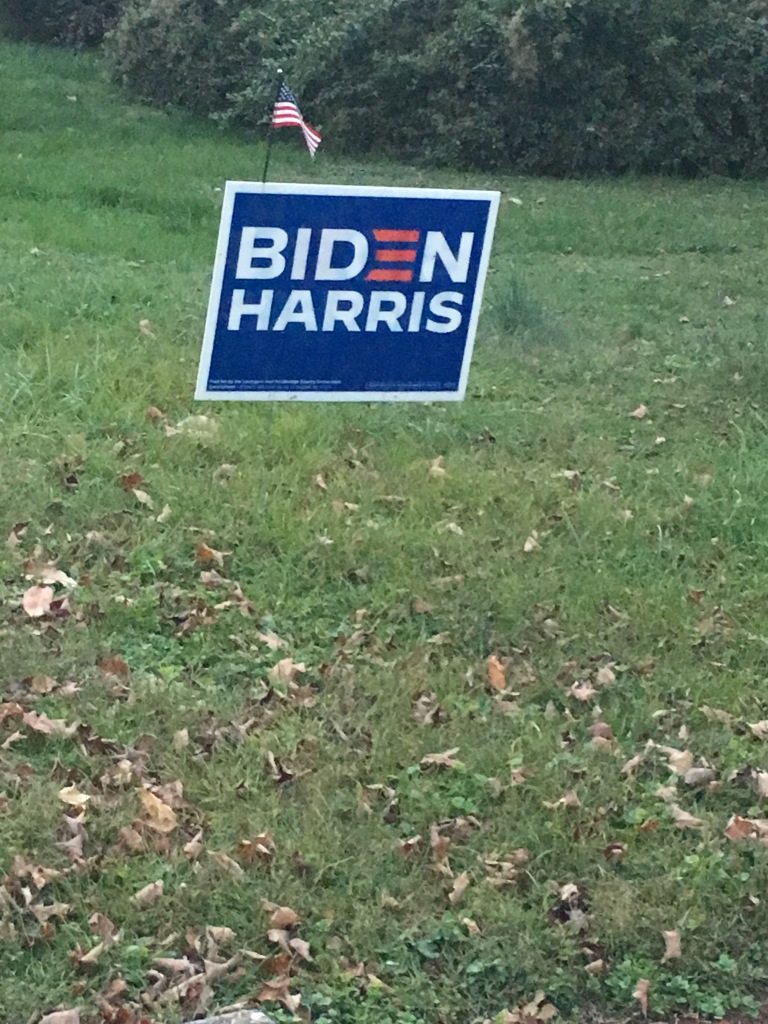
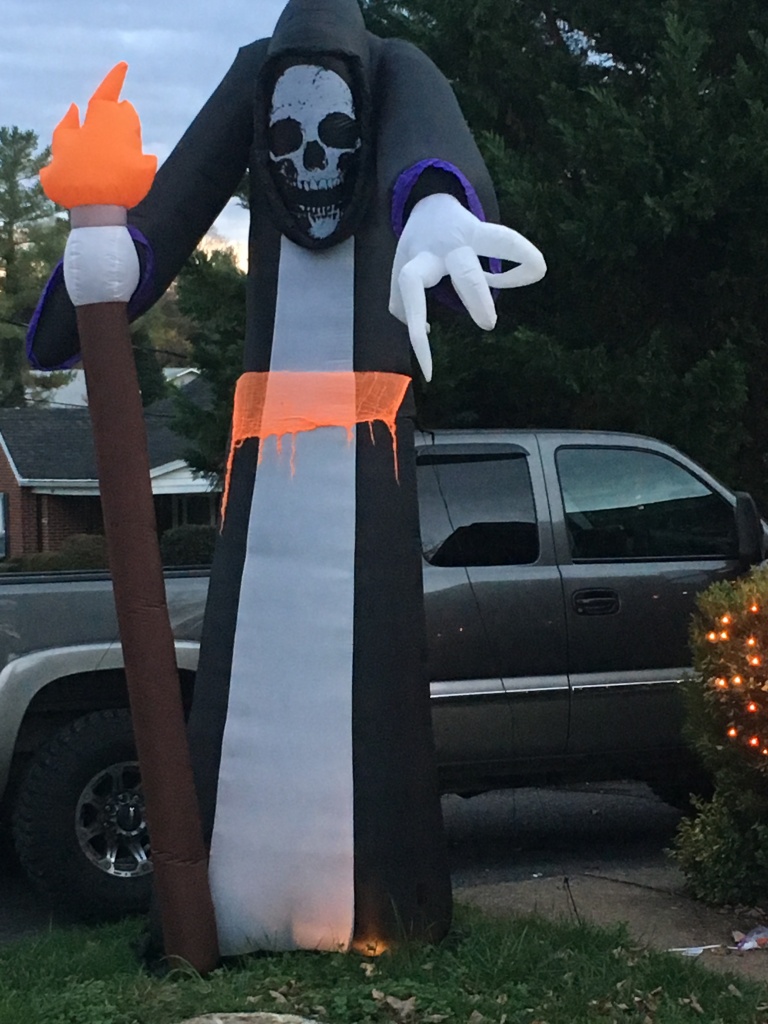

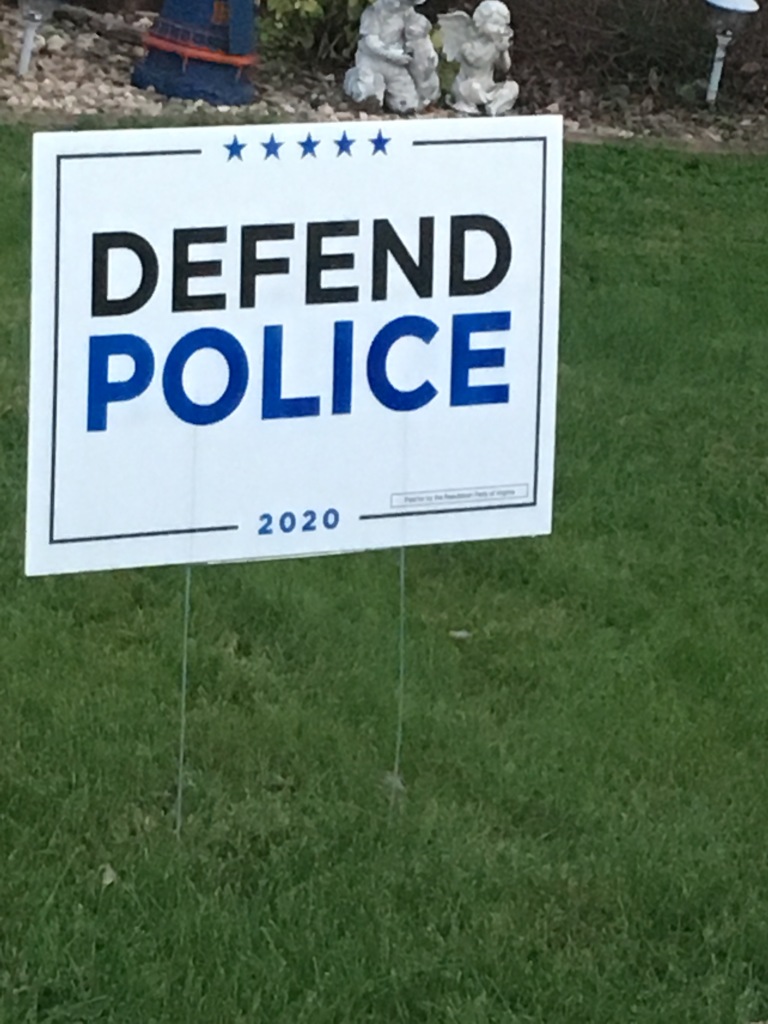
El Salto published this piece of mine today (11-1-2020):
Here are some photos that illustrate the article’s theme:






If you read Spanish and are interested in monuments and their symbolism, you might like this piece, published on July 6, 2020, by Revista Contexto (CTXT) in Spain.
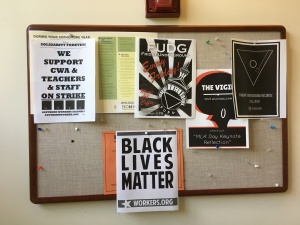
Good afternoon.
I am writing this short post in sadness and solidarity, and with regard and resolve.
Jesmyn Ward’s 2017 edited collection of essays, The Fire This Time. A New Generation Speaks About Race, is dedicated to Trayvon Martin and includes pieces by Ward, Garnette Cadogan, Edwidge Danticat, Claudia Rankine, Clint Smith, Isabel Wilkerson, and Kevin Young, among many others. It is no accident that many of the authors who contribute essays “say their names”—the names of black people killed by white people, and in too many cases, by white police officers in the United States. Trayvon Martin, Tamir Rice, Eric Garner, Sandra Bland, Philando Castile, Atatiana Jefferson, Freddie Gray, Breonna Taylor, Tony McDade, Sean Reed, Ahmaud Arbery, George Floyd, and a frighteningly long etcetera. The authors recognize the flare of anger, the Black Lives Matter chants and protests, the all-too-quick calming, or forgetting, of the public, and the repetition of this violent, racist, never-ending cycle. When I read the collection (for the 50 Ways Rockbridge Racial Justice book group), I was not surprised by the general physical, intellectual, and spiritual exhaustion that sighed between and behind the lines of each essay, but I was taken by how each author expressed with such patience and humanity their deep frustration and sadness surrounding white power structures in United States institutions. When I write about sexism, misogyny, and intersectional struggles, I rarely manage such grace and eloquence. And now, in these racist United States, I think that grace and eloquence are fine, and so are impatience and radical change.
Radical, etymologically telling us to foment change from the root. Radical, meaning in the streets. Radical, meaning in intimate settings in which you don’t put up with friends’ and colleagues’ racist bullshit. Radical, meaning in the textbooks and at your school. Radical, meaning broad racial representation at every level of every organization. Radical, meaning at the ballot box. Radical, meaning black power. Radical, meaning no more police departments made into white war machines. Radical, meaning we also remember the violence enacted against black women. Radical, meaning it is more than a century and a half past the time when white people were supposed to radically account for and reckon with colonialism and colonial legacies that continue to insist upon white supremacy and the dehumanization of other races. Radical, meaning from the root.
Since 50 Ways Rockbridge’s slogan is “Research, Educate, Act,” I will share here some of the resources people have so generously posted on social media and/or that we have used for programming in our area. I am deeply grateful to my friends and colleagues who are people of color who somehow continue this fight against white supremacy and this reckoning with white privilege. Thank you for your time, your activism, and your humanity. I thank many white people who have joined this fight as well (in my world, mostly white women; we must change this). For us white people, it is way past time to donate, if you can, read, learn, and act.
Related Gender Shrapnel posts:
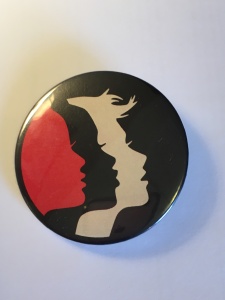

(Photos from 2017 Women’s March, Washington, DC. E. Mayock.)
After the #MeToo (begun by Tarana Burke in 2006) watershed in 2017, here we are. Another pussy-grabbing moment. Remember when, in January, 2017, at least five million (five MILLION) people across the globe donned pussy hats and protested the supposed election of a supposed president, whom we knew would mortgage United States democracy and encourage rupture and violence? Do you remember that they wore PUSSY hats? Do you care? Are you so fed up with the swamp-filling, pussy-grabbing, immigrant-hating, African-American-shaming, family-separating, genius-stabilizing, golf-playing, crony-benefiting, twitter-baiting, salad-talking, disinfectant-curing, press secretary-firing-and-hiring, chaos-sowing, benefit-reaping sorry sack of shit of a man who sits in the Oval Office and drains time, money, and good will from the “American people?” I am.
We have had enough for a whole host of reasons. Mine are listed above in my mini-rant. But I want to add, too, that many cis and trans women (and other people, of course) of all ages, races, religions, and classes have been filling in the gaps created by a resource-sucking president. Our free labor—at food pantries, in courtrooms, at detention centers, in retirement homes, at schools—speaks to the complete dysfunction of our national government and to the ways in which women’s labor is often undervalued, or valued not at all. I am mad about this, too. I want my free labor to contribute to excellent government function, not to fill in gaps created by a pussy-groping president and his sycophantic GOP cronies. We impeached Trump for his profoundly dishonest and damaging decisions about Ukraine; as a nation, we somehow never found it important enough to investigate the 20 “sexual misconduct” allegations against him.
So, of course, the obvious: Trump is not only not smart, not competent, not collaborative, not team-building, not trustworthy, not interested in the good of the American people, but he is also the greatest threat to U.S. and world security we have ever seen. More of the obvious: he must not be re-elected in 2020.
Now, I turn my attention to the Democratic party. I find it necessary to support this group because, at the very least, the party believes in education for all, a working social safety net (for those who doubted the need for this, just look around you right now, here in pandemic-land), labor rights, and voters’ rights, among many other issues and policies I am fully on board with. While Bernie Sanders is not a Democrat, he obviously still considers himself a contender for the Democratic presidential nomination. I am not in favor of his candidacy. I am what I guess is now called a “Warren Democrat.” Everything that Bernie has, Warren has. Everything that Bernie is lacking (full rationale for economic policies; a nuanced sense of group identification and intersectionality; ability to support down-ticket Democrats; rhetoric that is inclusive rather than exclusive), Warren has, and more.
Once Warren dropped out, leaving Biden and Sanders to duke it out, it became clear the mediocre, aged, white, male candidate would win the day. Despite Warren’s proven brilliance, careful planning, and clear generosity, Biden would get the nomination. From the get-go, a Biden nomination seemed retrograde, and it seems even more so now. As Rebecca Traister, Michelle Goldberg, and Alexandra Petri have stated in a variety of ways, a Biden nomination is at once unexciting and extremely fraught for feminists. This was true well before the Tara Reade allegations were made public, and is now an acutely terrible fact.
New York Times columnist David Leonhardt penned the “Run, Joe, Run” piece in January, 2019. At every turn, the piece lauded Biden for being the best possible Democratic presidential nominee for 2020. Leonhardt has the privilege to ignore what so many of us already knew. Biden, like so many powerful men, feels entitled to that which is not his. While preparing his presidential candidacy, Biden seemed to sense a pragmatic need to acknowledge and apologize for his aggressive treatment of Anita Hill in the 1991 Clarence Thomas confirmation hearings. The most he could muster, however, was an “I’m sorry for what you endured.” He tried the apology a few times, each time one step closer to acknowledging that he did, in effect, re-harass the already harassed, but he never quite got there, because getting there would surely have slowed the nomination train. The apology-as-expediency was already a red flag for me, a sign that Biden did not understand that he was part-and-parcel of a national government male power network. Even more, it meant that Biden would never lead the way in undoing #MeToo harassment and assault.
I also knew that Biden was referred to as “handsy.” This was not good. Men and women both love to create euphemisms for sexual harassment, discrimination, and assault, and “handsy” is a really good one. It implies that men are supposed to touch women, that women are supposed to put up with unwanted touching, and that there is no harm, no foul. It’s part of the system. “Handsiness,” I guess, is supposed to be innocent, innocuous, boys-will-be-boys and girls-will-be-assaulted behavior. It’s supposed to be enacted and accepted, time and time again, no matter the consciousness of the moment nor the constantly repeated trope of “me too,” “me too,” “me too.” The #MeToo movement was supposed to make us take stock of gender power dynamics, the way the law reinforces these, and the ways in which we indulge them in every profession, through every age. And, so, when I knew Biden was known to be “handsy,” I figured a real, and well-founded, allegation of more would be on its way. And it was, and it is.
Having just watched both “Bombshell” and “Unorthodox,” I have clear visual images of the women who are supposed to undress and then assume the position (“Bombshell”) and the women who are supposed to be completely covered while men thrust their midsections towards the women’s faces (“Unorthodox”). This is a pretty awful place to find United States politics in 2020. Even as I write this, I know several people who wish I wouldn’t speak out against Biden. After all, he’s a good guy, an Obama acolyte, not nearly as bad as Trump. But he is a terrible choice for president. If I knew convention policies and procedures well enough, I would hope for an amazing person to overtake the Democratic nomination—one of the many extremely capable women being considered as possible VP picks and/or one of the presidential candidates we had already been considering.
So, here we are. The incumbent for the GOP is the subject of 20 allegations of sexual misconduct/assault, and the presumptive nominee for the Democratic party is the non-repentant, unaware, “handsy” subject of a sexual assault allegation. Here we are, United States. We have distilled white, cis, heteropatriarchy into its essence: our current choices for the U.S. president are the privileged, powerful, pussy-grabbing, and pudenda-fingering.

The older I get, the more I need poetry. I need to read, hear, teach, write, and evangelize about it. I don’t know if it’s my age, or the years of teaching, or these more than just trying times. I’m not sure what makes me turn increasingly to volumes of poetry I read years ago and others that are brand new. I don’t know why I’m experiencing verse in a more physical, visceral, emotional way than I used to. It’s a little bit like a drug at this point, and I need my fix.
Enter Lesley Wheeler’s latest poetry collection, The State She’s In. Wheeler is a friend and colleague. We are close to the same age and live in the same state. And so, in many ways, the state her poetic voice is in is the same state I’m in. Even with my already very proximate relationship to this collection, the book surprised, delighted, and nourished me at every turn. I remember a French professor who said imperiously from her high teaching bank at the Sorbonne, “Mais ce livre est fantastique. C’est un must-read.” Unfortunate though it may be that I only remember her hilarious look and tone, and not the fantastic book itself, I want to adopt her same posture as I say to you all, glasses at the end of my nose, voice forceful, Wheeler’s book is a must-read.
When I read a single poem, I tend to perform close-reading: reading out loud; listening for rhyme and meter; understanding the flow from stanza to stanza; seeking words and images that repeat; coming to grips with poetic voice; deciding if the poem tends more towards metaphor or metonymy; slowly unraveling the theme. It’s a delicious savoring of an accomplished writer’s carefully wrought offering. It is a gift.
When I read a whole collection of poetry, I read it like a novel. The collection’s sections are chapters, the titles an invitation to keep moving. The poetic voice, so different from poem to poem or section to section, becomes like a shifting narrator, guiding me through the collection and giving an overall impression of its contents. I end up sensing the overall coherence of the work, the logic of the poet (and her editor) as she edits and compiles works drafted over time. When I finish the collection, I can almost narrate what happened, as if I had just read a plot-driven work.
This is not really how poetry should be read, and so I always go back to read the collection again—usually not in order. I pick poems and reread them, close-read them, seeking the lyricism, solace, humor—the focus I would normally lend to a single poem.
Last Thursday, I devoured Wheeler’s fifth poetry collection like I would a gripping novel. When I finished, I sat with the flow of blood, assonance, and indignation that marked the collection for me. I loved that each section was titled “Ambitions,” allowing the reader to think of the many ways—semantic, semiotic, musical—in which this word can map meaning. The poems that treat racial history, which in this state is also the racist present, are centered in the second “Ambitions” section and include “Blue Ridge,” “American Incognitum,” and the “Unremembered settlements” series, which disappears right before the reader’s eyes, effectively de-mapping the settlements of the Algonquians and Iroquois who lived in this state before it was a state. “John Robinson’s List, 1826” considers the enslaved persons owned by Lexington resident John Robinson. “Some of the entries hint at stories. Creasy, / 68, twenty dollars, but the note, / in a column usually blank, offers a hard ‘worth / nothing.’ The cursive relaxed but well-groomed.” The insistent enjambment moves the reader forcefully from real person to half-bared truth—the buying and selling of human beings, and the multiple erasures of their stories. Wheeler imagines lost stories without stealing voice, a feat she masters through careful archival work and an earned frustration with the state of race and gender where she lives.
Many of Wheeler’s poems present the blood of erased peoples, the reality of invisible people, the frustration and indignation of collective existence snuffed out. It is no accident that many of the poems in the third “Ambitions” section are dated 2016. Together, these poems decry the ever-increasing power of an-almost president who, down the line, would be impeached. “Bleeding on the street’s not too good for her, / thinks forty-plus percent of my broken / country. The liar calls her liar and the smear / sticks. After all, horror’s ordinary. The thirteen-/year-old boy just killed for holding a BB gun. / An an open-mouthed woman—well, blood’s her career” (“Inside Out”). The blood of racial violence and the blood of the vagina dentata, presumed mysterious, dangerous, and unworthy. In “Inappropriate,” Wheeler writes, “…Just her bad / inhospitable secret vagina, delivering plans. / Can’t see what she’s got up there’s / what they can’t stand.”
The poet weaves these themes through artfully wrought poetic forms, with evocations of the natural world reminding the reader to breathe—to activate the senses in order to sort through the themes (to experience the meshing of forma y fondo [form and meaning]). Wheeler writes with an urgency about pain and passages as she considers collective metamorphosis and personal, intimate transitions. I was particularly moved by “Pushing Toward the Canopy,” which appears towards the end of the collection. The allusions to trees, branches and leaves, and then to “water, water” are gently astounding and combine with the profound “I” of the poem, who asks at the end, “What do I want, if not dirt and rain / and friends who turn to me and wave?” As does the whole collection, this poem communicates both vulnerability and power, and, for those of us living decades in small towns, it reminds us of the intensity of union and disjuncture as life unfolds, as we “push towards the canopy.”
I loved this collection in part because it recalled the interstices of anger and frustration of my joints and tissues. It reminded me of political outcry and resistance and of gentle community-building—the to-and-fro of denouncing evil-doing and attempting to model something like radical love. C’est un must-read.

(The forsythia turned green early.)
Life in the era of Coronavirus in southwest Virginia is both beautiful and scary. The dogwoods are in full bloom. The forsythia springs forth, first sunburst yellow, now Saint Patrick’s green. The sun is shining, and the wind is blowing. Our cupboards sparkle for the first time in years, devoid of long-expired spices. The trash collectors want everyone to get the hell out of the house so they don’t have to handle years’ worth of household detritus. I’ve tried to develop a taste for hard cider, but I can’t. It smells too much like early motherhood.
I just went to look up more information about the names of trees in this place I’ve lived so many years, and I can’t get onto the Internet. Too many people in my house seek bandwidth. In this house, we have two teachers and two students and never enough broadband to get all the assigning and assignments done. We are the lucky ones. Many people I know have no WiFi and have to hop in their cars or trucks to park near a school or library to find some. They also get in the school line to pick up breakfast or lunch or both for their school-age children. Every basic need becomes more urgent, more acute, during this time.
Life is both busy and slow. The busy-ness stems from our local community relief effort (https://www.50waysrockbridge.org/), which points us once again to the many holes in the so-called social safety net. I’m one of the privileged ones who, at least for now, can donate thought, money, and time to the needs of others in our area. This work feels like a crash course in Social Work 101, 202, and 505. I am in awe of what our friends in social services and NGOs do every day, how they bear the expression of need and the occasional heartbreak and then attempt to fill in as many of the gaps created by brutal market systems that continue to privilege the privileged.

(Maybe it’s scary that I am taking, from the bathroom, photographs of latticework shadows?)
The slowness, well, many of us are getting to know that slowness now, aren’t we? Even as I transfer my courses to an online format, teach them, and grade students’ assignments, I know that none of this pace is like the actual pace of life—the meeting after meeting after meeting, the meeting minutes, the meeting phone calls, the advising, the emails, the text messages, and the constant being “on.” None of this is like that. I am relieved. I am relieved by living a little more like I did when I was 5 and 10 and 15, and even 20. I am grateful for social media, but also delivered from it in some ways. And I love that. I hear the birds, I walk the dogs, I read the books, I play games with my children, I snuggle up to my partner, I bake. These are things I easily forget to do and to appreciate (or simply can’t do) when there isn’t a pandemic.

(The dog is exhausted.)
I feel far from my Pennsylvania, California, Texas, and Madrid families, and I worry about them. I wish I were nearby to do…what? I guess I would be isolated from them still, just at less of a distance. I think constantly about what will happen over the next weeks and months, about how many people have lost jobs already and will lose jobs, about the inability to pay employees, rent, utilities, about the availability of food, cleaning supplies, medical supplies, about healthcare personnel and their safety and protection, about the loss of life. I am worried about current danger and more loss. May you all be as well as possible. I am sending hugs out into the world. We have rarely needed them more than now.

(A friend sent a card from the next town over. It still felt so far away.)
 (Cover of Sara Ahmed’s 2014 Willful Subjects)
(Cover of Sara Ahmed’s 2014 Willful Subjects)
I had never been in better shape in my life. There I was, for some reason playing intramural flag football with a team from my first-year dorm, sprinting around the field feeling lean and strong. After about twenty minutes of play against a neighboring dorm, we had scored several touchdowns and smelled victory. As we lined up on the makeshift line of scrimmage, our quarterback planning to throw it to me long, I heard an opponent yell, “Get the big girl. Cover the big girl!” It wasn’t until after the touchdown that I registered the exhortation and realized that the opponent was referring to me. I think it was at that very moment when lean, sinewy me decided to embrace the big girl. I didn’t articulate it to myself (I wasn’t the most introspective back then), but I think I knew that, if my fit, active self was still “the big girl,” then so I would be her, fully her. Not just big and muscular (and now fat, too), but also loud and hungry for life and full of opinions.
With each passing day, being the big girl became more and more entertaining, more and more natural—more and more, just me. It is no accident that I’m listening to Lizzo’s “Feeling Good as Hell” as I write this. (Oh my God, I love the line in Lizzo’s “Truth Hurts” of “That’s the sound of me not calling you back.”) In Gender Shrapnel in the Academic Workplace, I discuss having seen the film Julie and Julia and marveling at Julia Child’s taking ownership of how others perceived her—recognizing her height and stature and funneling that into her joie de vivre. Many years ago, my then-boyfriend (now-husband) and I, both teachers, read Mary Pipher’s Reviving Ophelia. Saving the Selves of Adolescent Girls. We joked that my book would be called Subduing Ophelia, but we also took very much to heart the ways in which adolescent girls learn to shrink.
If it were just us big girls here on earth, then I think we would remain big and hungry and laughing and experimenting—curious about the world and loving towards it. Lamentably, though, even the biggest and loudest of the big girls can become invisible. Although individual blame can surely be placed (no need to mention here Weinstein and Trump as metonymy for all the power-hungry rapists who disappear women), I find it most useful to understand invisibility as social structure and institutional habit. I write about this copiously, and from both theoretical and practical perspectives, in the Gender Shrapnel book. In the book, invisibility is part of an intersectional paradigm of and with gender, and it plays against visibility (being invisible at all the wrong moments and then too visible, too scrutinized at other moments).
My sister and I, two girls of the seven children in our family, have laughed often about sitting in the stands, watching a brother play a sport, and hearing others talk about our family. “Yeah, that number 12, that’s one of the Mayock boys. They have seven kids, all boys.” We told each other we looked fabulous and that we were the hottest of the seven Mayock boys. When I made the All-District (or whatever they called it back then) basketball team, my brother, who was in the same year of high school as me, did as well. We were delighted for each other. I was too naïve to be concerned when the local paper wrote about my brother in the blurb about me and wrote about my brother in the blurb about him. But I started to understand when one of my mother’s best friends wrote a letter to the editor complaining about it. She didn’t use the term “invisibility,” but that was surely what she disliked—the erasure of an adolescent girl’s accomplishments and the double offering of an adolescent boy’s accomplishments. None of the sexism from back then felt personally motivated or enacted. It felt institutional, habitual, natural.
I am 54 now. I started teaching when I was 21. I have taught a lot of students in a lot of different classes in many different contexts. I think you could call me a professional, someone who knows her stuff and cares about how she does her work. I am bigger than I used to be—a “bigger girl” in some ways. But I’m reminded each day that invisibility is still an institution, a habit. Many of my students call me “Mrs.” or “Señora,” while they call my male colleagues “Professor” and “Doctor.” Just the other day, I replied to an email from a colleague at a neighboring institution. His email signature indicated he was a colonel, and so I addressed him as “Colonel So-and-So.” I included my formal email signature. In Colonel So-and-So’s reply, I was “ma’am.” In meetings, I have found that I no longer even stick up for myself, cementing my own invisibility, because it’s exhausting and because it brings on the kind of visibility that I’m tired of attracting.
A colleague recently said I was being “willful” when I asked for more information about a decision our group was making. Of course, the word transported me immediately to Sara Ahmed’s brilliant Willful Subjects (Duke UP, 2014). In the introduction, Ahmed writes, “Willfulness is a diagnosis of the failure to comply with those whose authority is given. (…) Willfulness involves persistence in the face of having been brought down.” She adds that, for women, “to be identified as willful is to become a problem” (3). For me, the big girl is the willful subject, whose very assertion of self is constantly scrutinized, criticized, and erased. The repetition of removal affects the individual herself and all those who witness it, coming to understand the price of willfulness.
It is within this context that I think about Elizabeth Warren’s candidacy to become the Democratic candidate for the President of the United States. While the major woman candidate before her was “locked up,” again and again, institutional structures (Russia’s interest in U.S. elections; the Democratic party itself; Bernie Bros; traditional and social media; debates designed to have candidates go after each other; etc.) functioned for some crucial weeks to silence, or make invisible, Elizabeth Warren, whose big brain and detailed plans should make her perhaps the most visible of the remaining candidates. Thomas Friedman, in his February 25th (2020) op-ed titled “Dems, You Can Defeat Trump in a Landslide,” made clear that either Sanders or Bloomberg will be the white male savior, and that everyone else should fall in line in their secondary roles. Super Tuesday is this coming Tuesday, and I’m not yet ready to join the invisibility train for the person I believe to have the best of the best of what all candidates can offer. (Of course, I will support and vote for whoever wins the Democratic nomination. That should go without saying.)
This big girl wants to see Elizabeth’s Warren big brain, huge heart, detailed plans, and willful ways occupy the White House. Fingers crossed for a Super Tuesday.

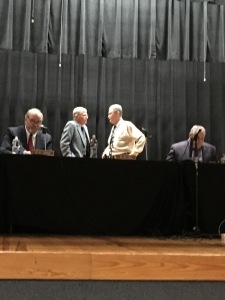
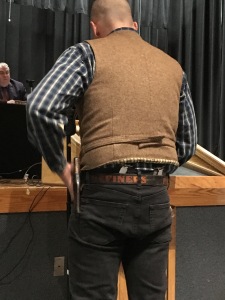
“They’re comin’ for yer guns, no doubt about it.”
“Just bury your guns for two years, and then you’ll get ‘em back when we flip the statehouse.”
“Guns don’t kill people. People do.”
“We’re gonna get to the point where you can’t even give a gun to a child.”
“We are not going to be sheep led to slaughter.”
“Don’t let liberal elites tell you what to do.”
“More guns, less crime.”
These are a few quotes from the December 8th (2019) townhall meeting held by Virginia 24th District Delegate Ronnie Campbell (*described in this post). The meeting served as regional Republican Party preparation for the Rockbridge County Board of Supervisors meeting to decide on a local Second Amendment, or “gun sanctuary” resolution. The following night, the Board of Supervisors meeting, ostensibly scheduled to vote on the resolution, turned into a Trump rally. Here is a link to the Rockbridge County Board of Supervisors site. As yet, neither the December 9th minutes nor the resolution itself has been posted.
As you might have seen in my previous post about the townhall meeting, Delegate Ronnie Campbell introduced the gun question by first launching three major GOP talking points—voters’ rights (“Why should everybody get to vote?”), abortion (who gets to decide?), and “you can’t trust the left-wing media” (adding, “Citizens are not well informed.” I’ll say!). As he introduced these three points, Campbell said, “These are not Republican talking points or anything like that” (um, Ronnie, that’s exactly what these are). He has been well-trained in Trumpism—appeal to the one-issue voters by making sure to bundle their one issue into the whole package, never distinguishing between or among issues, and never providing actual data or facts. You can get a crowd good and riled up in this way, which is why the United States is in chaos three years into this tyrant’s so-called presidency.
I attended the December 9th Board of Supervisors meeting with about twenty people opposed to the gun sanctuary proposal and 1180 in favor. We twenty knew the fix was in, but we believed it was worthwhile to show up and have resistance heard. With several hundred students doing evening activities and competitions at the high school and a host of heavily armed deputy sheriffs all over the school, the atmosphere was tense. I was not surprised by the numbers, nor was I surprised by how this board of our rural county ran the meeting like a Trump rally. They told people from Lexington City that they would not be allowed to speak until everyone from Rockbridge County had spoken. This would make sense, maybe, if Lexington City residents did not have (and vote for) the same sheriff as the Rockbridge County residents, did not send their children to the only public high school in our area (Rockbridge County High), and did not work and play in Rockbridge County. But we do do all of these things, and therefore our voices should also matter.
In addition, the Board allowed two featured speakers before they opened the discussion: Virginia House of Delegates Ronnie Campbell and resident of Rockingham County (one hour north of us) Jennifer Brown, who serves as a regional committee chair for the Republican Party. Campbell did his assigned part by giving a Trump stump speech, ending his remarks with a loud, cheerleader-like “Vote for Trump!” Even though she is not a resident of Rockbridge County, Brown was able to deliver her comments as she had at the townhall the day before—as GOP talking points and with no data, no statistics, no real information. The Board of Supervisors set the tone from the get-go, telling us Dems in the front two rows how this would go. The set-up was a big middle finger to anyone interested in discussing common sense gun reform and to the reality of a state turned blue.
Of the seventy or so people who spoke in favor of Rockbridge County being a gun sanctuary (although, of course, the resolution itself is quite limited), only four were women. Three of the four women acceded to the public stage by claiming themselves Christians, wives, and mothers. This declaration seemed to give them permission to speak. The 66 men who spoke in favor of the resolution performed various combinations of the following: citing their military service; talking about their families’ longstanding ties to Virginia; creating an us/them dynamic, especially regarding northerners and migrants; disparaging lawmakers in Richmond; criticizing “liberal elites”; mentioning, sometimes in one fell swoop and always without historical or political nuance, the Holocaust, socialism, and communism; claiming what God owes them. Some of those who spoke promoted their books and websites; others promoted their shooting ranges. Of all those who spoke in favor of the resolution, one single person advocated for a real conversation between the two sides to see if some form of compromise was possible.
Board Chair Jay Lewis (whose actions from the previous weekend are described here) had told the audience that no waving of signs, heckling, or general disruptions would be allowed. Second Amendment signs were waved throughout the almost-three-hour session. When some of us 20 in opposition asked for the Board to follow its own established rules, we were shouted down, being called the “b” word and the “c” word and being told to shut up. Lewis chided us, but not the others, who received a complicit half-smile and nod. The intention was to establish a threatening atmosphere, and it worked. These are the moments at which the Second Amendment folks try to use guns and/or the threat of guns to limit First Amendment rights (especially freedom of speech and freedom of assembly). (*See this related Gender Shrapnel post about these dynamics in Charlottesville, 2017.) Not only did the Board of Supervisors not have our backs, but they actively made our backs a target for Second Amendment backlash.
While I sat in the school auditorium, I received a text from a friend containing a Facebook post from the regional GOP chair. The regional chair (who at that point was seated five seats away from me) had posted this:
“FB page: Jennifer M Brown
8 hrs ·
Fellow Rockbridge Patriots! There is a woman who is a member of 50 Ways Rockbridge, which is a progressive group of rabid agitators. She has personally threatened a fellow brother of our cause, and I take personal exception to anyone who threatens one of our own. She also is a professor who teaches our youth, which is especially concerning.
She attended last night’s 2A info meeting and made sure to record and take notes what was said. She has reported back to her group and they are planning to be present at tonight’s Board meeting with an agenda.
Please be respectful in your comments and do not engage in any communication with this group. They want us to respond so the media narrative can make our cause look fringe.
We are NOT gun activists. We ARE Constitutional Patriots! #2AStrong”
This spokesperson for the Republican Party said the following that was true: I am a woman. I am a member of 50 Ways Rockbridge. I am a professor. I take notes. The rest of her statement seems to come from a second-rate Russian bot-farm, but, of course, it is designed only to spread lies and shut people down. If I wanted, I could establish a case for libel here, especially since this person is impugning my professional reputation. I invite her and anyone to talk to me about my teaching and scholarly accomplishments and about the careful and constructive ways in which 50 Ways Rockbridge has worked in this community. Bring it. But do not threaten me or silence me. (*See this NPR report and this Washington Post piece about Virginia delegates receiving death threats.)
It bears mentioning that I reported this libelous post that very night to our newly elected sheriff, telling him that I felt unsafe (1180 to 20; violent name-calling; targeted trolling). He tried to reassure me by pointing to all the officers with guns. “Q….E…..D,” I thought. Armed officers do not make me feel safer. Guns do not make me feel safer.
As I’ve mentioned before on this blog, my field of expertise is cultural studies. For cultural studies, you learn as much as you can about the history, demographics, legacies, languages, cultural production, and cultural practices of a specific region and apply that knowledge to an analysis of the audio, visual, and written texts produced by people from the area. I have lived in Lexington, Virginia, for 23 years and have lived in the state of Virginia for 27—half my life, more years than I lived in my hometown of Philadelphia. The lilt and twang of the local accent no longer strike my ears as different or odd. The use of “sucker” for “lollipop” or “buggy” for “shopping cart” sounds completely normal. I know the range of typical last names in the area, from the Clarks to the Zollmans and the Mutispaughs to the Nicelys. I have ridden my bicycle through many miles of this large county and have seen the mansions and the no longer mobilized trailers with old sweaters stuffed into windows to keep out the rain. I have been to many of the churches, despite my atheism. This is home to me, even if others see me as a Yankee, a damned Yankee (the kind that doesn’t leave), or a carpetbagger. I have watched this community grow and change over these years, and I have tried to do so as both participant and observer, understanding my outsider status but also learning how you become a part of a community over time.
Cultural studies practices tell you to understand your own baggage before analyzing that of others. In a way, I think this practice is the greatest strength and weakness of the Democratic Party. The party’s hallmarks should be (and sometimes have been): recognition, celebration, and amplification of a diversity of peoples and voices; sincere and well-versed people advocating for competing ideas and duking them out; adherence to executive, judicial, and legislative norms as laid out in founding documents; examination of depth and nuance. While the Democratic Party falls far short of these ideals, it at least still seems in dialogue with them. Over these past three years, I have asked repeated times in the Gender Shrapnel Blog: To what extent must we politicize kindness and humanity? If calm, careful, thoughtful, and generous approaches to problem-solving are now old-fashioned, passé, done, as I fear they are, then how do you advocate for what is right in a measured way without always losing to an entrenched, mendacious, narcissistic, racist, sexist, homophobic—an unjust—other side? Does civility mean that the powerful control the process and ask others to accept it quietly, with no fuss?
Local friends have often talked about hunting—when the season starts; when it ends; what you can hunt; how you hunt it; when you use a bow or a gun; how you train the kids to hunt; how you prepare the meat you’ve hunted; what it means to be in nature in this way. I have been curious about these issues, which, of all the cultural elements of our region, are the most distant from my own upbringing. As someone who for years cycled through the hills, mills, hollows, and valleys of this beautiful county, I have seen hunters and signs for hunting. I have laughed at the image of the yuppy cyclist commingling with the camouflaged hunter, thinking there has to be some kind of cosmic cultural fusion joining us in nature.
I hope I am a careful thinker, and I definitely am an ardent talker. Don’t let the impassioned expression of my ideas trick you. I earn my opinions, and I want others to do the same. If I thought the Second Amendment extremists (which I would define as those who believe the Second Amendment to be more important than all other amendments) were also careful thinkers and also invited reasoned debate, I would want to engage in real conversation with them. I want to see Republicans take a cultural studies approach to their discussion of common sense gun reform and educational reform in Virginia. Guns do kill people. Virginia’s, and the United States’, continuing legacy of violence must be addressed.
The December 8th townhall meeting allowed me to think through the proposed legislation for the Virginia General Assembly session—specifically Senate Bills 16, 18, 51, and 64. (*See this link for all legislation related to weapons.) The GOP talking points, distributed by 6th District Republican Committee Chairperson Jennifer Brown, read more like rally propaganda than clear education on the actual legislation proposed. The document, designed only to whip up a crowd, not to provide information, parse ideas, and ask for reasoned feedback, included no links to actual proposals, no direct text, no grounded reality of the issues. This is propaganda, not education or democracy, and this is the problem with regional, state, and national politics in the United States.
Why do we want to control people, rather than allow them the information they need to make their own decisions? Isn’t that real liberty, real freedom? For example, the Rockingham (VA) GOP Committee states in their talking points: “School shootings are relatively rare despite recent media narrative reporting and Democrat messages that would have you believe otherwise.” They include no data, no links to reputable sources, no verifiable information. (*See this post and this one for actual statistics on school shootings and gun violence. *Also see the Moms Demand Action site and Everytown for Gun Safety.) I do not want to mislead people. Why would I? I just want to share real data, real statistics, on a real problem that has deeply affected the state of Virginia and the United States. I want a little bit of book learning to go a long way.
What I am about to say will strike you as naïve, and it is. After all these years here, and after all the thinking about culture and roots and belonging and not belonging, I somehow did not anticipate the profound ways in which Republican talking points would distill themselves, like so much moonshine on a late summer’s day, into just guns. Guns as power, guns as a God-given right, guns as a community of men and the supporting cast of women, guns as military pride, guns as sacrifice, guns as “sacred honor,” guns as nation, guns as Christianity. Guns as, like you see on the t-shirt in the photo included here (from the December 9, 2019, Rockbridge County Board of Supervisors meeting), Family-Faith-Friends-Flag-Firearms–“Five Things You Don’t Mess With.” Guns as an old United States that should be able, through education, to embrace a new United States built on community, care, and justice.
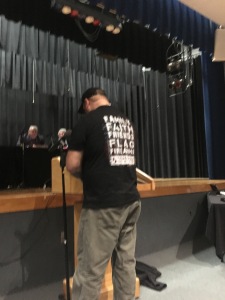
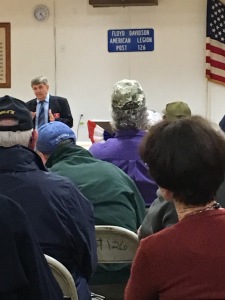
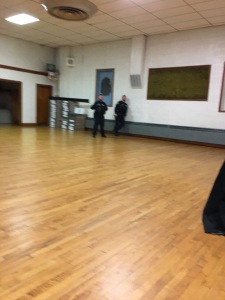
(Left: Virginia House of Delegates, 24th District’s Ronnie Campbell at the Buena Vista American Legion Building on December 8, 2019. Right: Two armed police officers at the event.)
(I wrote this post on Sunday, December 8, after attending Virginia House of Delegates member Ronnie Campbell’s townhall meeting in Buena Vista, Virginia. The gun sanctuary decision was made the following night, December 9, by the Rockbridge County Board of Supervisors, who met at Rockbridge County High School. I will write a new post soon about the December 9th meeting and decision. The next post should demonstrate that I did listen to people’s concerns about common sense gun reform, learn a lot of gun vocabulary, deepen my awareness of local culture, and come to understand even more poignantly the power of the NRA lobby in the GOP and, by extrapolation, our nation.)
You may know me. I am one of the tens of thousands of Democrats who, in November of 2016, joined with friends and neighbors to decry the result of the presidential election, feel shame that I had not been more active before that point, and resolve to do something about it. “It,” meaning all of it: stop-and-frisk police stops and killing of African American individuals; violence against and intimidation of immigrants; attempts to remove basic healthcare from millions of hardworking residents of the United States; and rampant corruption of the newly-elected president, so afraid to have his tax documents shared and so in the back pocket of a foreign government looking to manage the United States through its toady president. You know me because I teach you, or live next to you, or am related to you, or sat next to you today at a meeting about gun sanctuaries.
My husband teaches at the sole public high school in our county in rural southwestern Virginia. Four years ago, he almost singlehandedly beat back a gun raffle (it’s exactly what it sounds like) being held at the high school in support of the wrestling team. When the raffle got cancelled, my husband was threatened by a county Board of Supervisors member inside the school. After Parkland in 2018, my husband and many of his colleagues at the high school asked the Rockbridge County School Board and Board of Supervisors to consider greater safety measures for the high school. The measure was never taken up, nor indeed responded to. 200 students bravely participated in a walkout soon thereafter, but the school board and board of supervisors never paid them any mind.
Now, the post blue-wave, mobilized Republican Committee of our area is responding to the Virginia Citizens Defense League by proposing that our county be a “gun sanctuary county.” The Board of Supervisors meeting is of particular interest tomorrow because the Board will hear a “Second Amendment Sanctuary” resolution, of the type drafted and approved by over thirty Virginia counties (Washington Post 11/29/19 Editorial linked here). Some residents are advocating that the sheriff and law enforcement defy any state laws passed to implement common-sense gun safety reforms. We Democrats in the area are concerned about mob rule and lawlessness, as well as general safety in a state that has seen the Virginia Tech massacre, (2007), the Charlottesville violence (2017; Gender Shrapnel post here), and the Virginia Beach shooting (2019).
The Board of Supervisors has chosen to hold the gun sanctuary resolution discussion and decision at our local high school. Keep in mind the school shootings that have taken place in the United States since Columbine (and note that there have been 45 school shootings in 46 weeks in 2019; related Gender Shrapnel post here). Tomorrow night, when the meeting takes place, my husband and 150 students, parents, and coaches will be at the high school for a home meet of the academic team. My daughter will be wrapping up swim practice for the high school. Nice time to hold a gun sanctuary meeting at a public school. When my husband wrote to the chair of the Board of Supervisors to express concern about the confluence of the gun sanctuary meeting and regular school-type events, he received no reply. But, at Friday night’s holiday parade, he did feel a large presence grab his right shoulder then his left, hold him place, put his mouth on my husband’s ear, and threaten him verbally. You know me. I’m the woman whose family is not allowed to express concern about safety without being physically and verbally threatened.
When I spend a Sunday afternoon at the American Legion in Buena Vista, Virginia, I am sitting with Republican neighbors. They introduce themselves in a friendly way, a little less friendly when the word spreads through the crowd that I am from the other side. The American Legion building has framed military uniforms, a framed copy of the American Legion constitution, enough American flags to keep a whole town warm at night, and 170 chairs set up for constituents of the Virginia 24th District, one of which I am. About sixty of us are to sit back, relax, and hear Virginia House of Delegates member Ronnie Campbell prepare them (us?) for the Rockbridge County Board of Supervisors meeting the following evening. Our delegate frames the gun sanctuary discussion through the lens of voter ID (“everybody thinks they can vote”), abortion (“there’s stuff coming at us”), the news media (“Fox is the only one left out there. Citizens are not properly informed”), and Trump (“one of the best presidents we’ve ever had”).
Guns are metonymy for Republican talking points, and they are real objects that kill real people. You know me, and I have had enough.
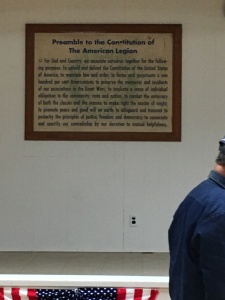


(50 Ways Rockbridge original call for issues groups / December, 2016)
50 Ways-Rockbridge: Year Three’s Big List
I just found in my kitchen drawer a short stack of scrap paper, which included the original 50 Ways Rockbridge announcement to our local community. (*See the photo above.)
This simple, urgent community convocation seems quaint to me now—the result of nine or ten people getting together in the wake of the November, 2016, elections to figure out what could be done to combat what we were certain would be a series of unjust and inhumane statements, actions, and orders. The idea was to create an organization that would encourage the growth and de-growth of issues groups, whose specific work would be supported by all the people who constituted 50 Ways. A month later, we saw the mushrooming of “Indivisible” groups and were approached to sign on as a local Indivisible group. We did so, but maintained that we were actually “divisible,” that we were not seeking absolute agreement and harmony on every issue, but rather a willingness to research the issues, educate ourselves and others on them, and then choose appropriate actions to take at the local, regional, state, and national levels. Activists would choose and run their issues groups and seek support from the larger group for educational events, protests, and rallies.
The first year brought great energy, hundreds of people, and thousands of phone calls, letters, e-mails, and letters to the editor. You can see the Year One summary here. A local women’s rights rally, environmental protests, and fighting off numerous attacks on Obamacare stand out as key moments at which our entire group galvanized to resist inhumane actions and build community.
Year Two, summarized here, brought new challenges. People were tired. There was attrition. The “president” and his web of cronies were even bigger assholes, crooks, felons—indefatigable in their horribleness, criminality, and inhumanity. Some issues groups disappeared, while others become more clearly defined. 50 Ways shrank some, but also grew in its resolve and infrastructure. We worked closely with the local Democratic committees to get out the vote and welcome the blue wave of Midterms, 2018.
In this third year, we have refined our communications through directed e-mails, consistent Facebook posts, and, especially, an overhauled website. We continue to sponsor talks and workshops and to stage and support protests and rallies. Our number of active members is reduced, and so the quick, on-the-fly response to major national issues is at times less nimble. We have paid attention to what other resistance groups do and why, and we have enhanced our connections to groups like VARatifyERA, Everytown for Gun Safety, the NAACP (especially our wonderful local chapter), Al Otro Lado, and CAIR, among many others. We particularly like the Americans of Conscience weekly lists and broadcast those to our members. While we have disagreed on some major issues, we continue to take the time to talk them through and to understand others’ opinions. The gun sanctuary issue from just a few weeks ago pointed to major cultural issues where we live and also to the ways in which the national GOP ethos has permeated even remote areas of our nation. Following the Rockbridge County Board of Supervisors vote on the “second amendment sanctuary” issue, some Facebook chatter shone light on divisions among us. “Why fight an unwinnable battle?”, some asked. “Why not always show up to suggest that another possibility exists?”, others replied. We continue to research, educate, and act, and we continue to be “divisible.” To put it in more academic terms, we encourage the dialectics of disagreement because it is in this very articulation of our hard-fought opinions that we show what democracy looks like. May we continue to do so through Year Four, and may we get out the vote for the primary and for the big show in November.
Thank you for the many ways in which you’ve supported 50 Ways through these three years. Here’s the Year Three “Big List.” Many specific events are not listed, but the major ideas are here.
Community
We have:
Issues Groups
Resistance
We still have work to do for Year Four!:

Hispanic Studies Professor, researcher, author
Poetry, nature, books, & speculative philosophical musings
Ellen Mayock
Chris Gavaler Explores the Multiverse of Comics, Pop Culture, and Politics
killing joy as a world making project
Bio, información sobre publicaciones de libros y artículos, agenda y más
Hispanic Studies Professor, researcher, author
Poetry, nature, books, & speculative philosophical musings
Ellen Mayock
Chris Gavaler Explores the Multiverse of Comics, Pop Culture, and Politics
killing joy as a world making project
Bio, información sobre publicaciones de libros y artículos, agenda y más